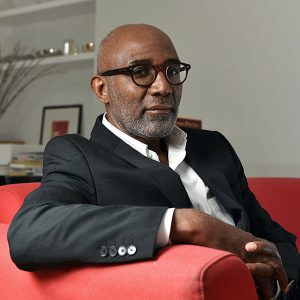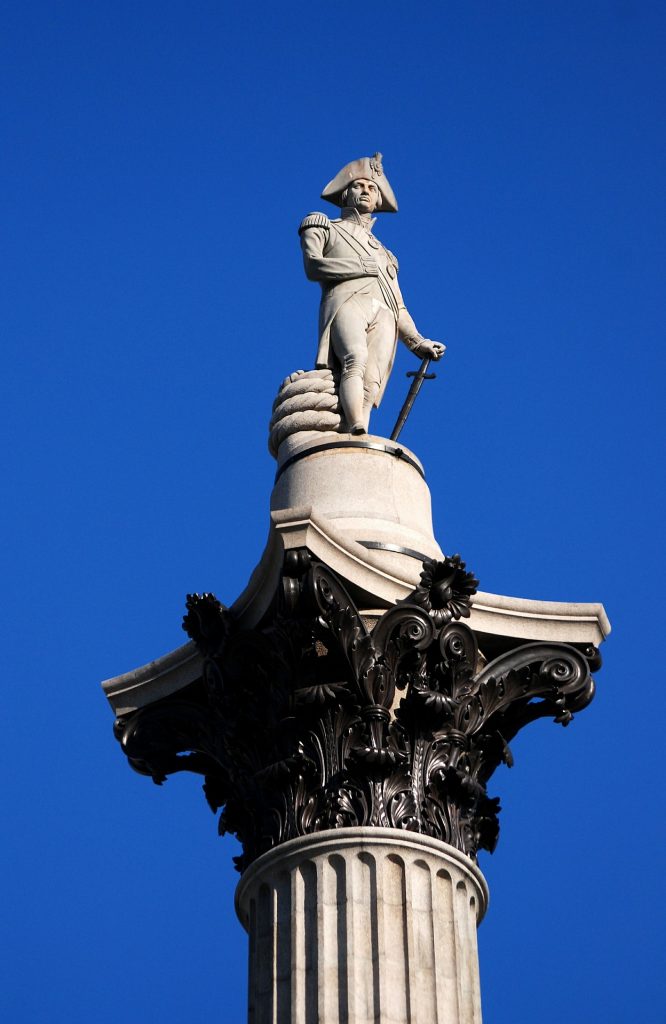Awards
[vc_row full_width=”stretch_row” css=”.vc_custom_1569408985014{margin-top: -50px !important;}”][vc_column][vc_row_inner][vc_column_inner][vc_empty_space height=”45px”][vc_custom_heading text=”ABOUT THE AWARDS” font_container=”tag:h2|text_align:center” use_theme_fonts=”yes”][/vc_column_inner][/vc_row_inner][vc_row_inner disable_element=”yes”][vc_column_inner][vc_empty_space height=”45px”][vc_custom_heading text=”FREEDOM OF EXPRESSION AWARDS 2022″ font_container=”tag:h2|text_align:center” use_theme_fonts=”yes”][/vc_column_inner][/vc_row_inner][vc_row_inner equal_height=”yes” content_placement=”middle”][vc_column_inner el_class=”awards-inside-desc” width=”1/2″][vc_column_text]
Index on Censorship’s Freedom of Expression Awards celebrate those who have had significant impact fighting censorship anywhere in the world. There are three categories: Arts, Campaigning and Journalism.
Winners are honoured at a gala celebration in London and join Index’s Awards Fellowship programme to receive dedicated training and support. The panel of judges for the 2021 Freedom of Expression Awards include writer and columnist Fatima Bhutto, award-winning sculptor Anish Kapoor and Ailbhe Smyth, founding director of the Women’s Education, Resource and Research Centre, University College Dublin.
The 21st Annual Freedom of Expression Awards were held on Sunday 12 September 2021 in London.
[/vc_column_text][/vc_column_inner][vc_column_inner width=”1/2″][vc_video link=”https://youtu.be/Xc486MkHdig”][/vc_column_inner][/vc_row_inner][vc_row_inner equal_height=”yes” content_placement=”middle” disable_element=”yes”][vc_column_inner el_class=”awards-inside-desc” width=”1/2″][vc_column_text]
About the Freedom of Expression Awards
Index on Censorship’s Freedom of Expression Awards celebrate those who have had significant impact fighting censorship anywhere in the world. There are four categories: Arts, Campaigning, Journalism and the Trustee award. Winners are honoured at a gala celebration in London and receive dedicated training and support.
The panel of judges for the 2022 Freedom of Expression Awards include award winning artist and academic Coco Fusco, BAFTA and award winning artist Alison Jackson, and Executive Editor and Culture Editor of The Sunday Times Ben Preston. The 22nd Annual Freedom of Expression Awards will be held on Thursday 27 October 2022 in London.
Click here to find out more about previous winners.
[/vc_column_text][/vc_column_inner][vc_column_inner width=”1/2″][vc_video link=”https://youtu.be/Xc486MkHdig”][/vc_column_inner][/vc_row_inner][/vc_column][/vc_row][vc_row][vc_column][vc_empty_space][/vc_column][/vc_row][vc_row full_width=”stretch_row” el_class=”tpl_awards” css=”.vc_custom_1488298822902{margin-bottom: 25px !important;}”][vc_column width=”1/4″][vc_single_image image=”117478″ img_size=”full”][/vc_column][vc_column width=”1/2″][vc_custom_heading text=”Gala” font_container=”tag:p|font_size:20|text_align:left” use_theme_fonts=”yes”][vc_column_text el_class=”mw600″]
The 2021 Freedom of Expression Awards winners were announced at a ceremony in London. This special event seeks to celebrate free expression activists and champions. Actress Tracy-Ann Oberman served as ceremony compere
[/vc_column_text][/vc_column][vc_column width=”1/4″][vc_single_image image=”118773″ img_size=”full” onclick=”custom_link” img_link_target=”_blank” link=”https://www.indexoncensorship.org/wp-content/uploads/2021/08/Awards-sponsorship-package.pdf”][/vc_column][/vc_row][vc_row full_width=”stretch_row” disable_element=”yes” el_class=”tpl_awards” css=”.vc_custom_1652348786435{margin-bottom: 25px !important;background-color: #0a0a0a !important;}”][vc_column width=”1/4″][vc_single_image image=”114257″ img_size=”full” alignment=”center”][/vc_column][vc_column width=”3/4″][vc_custom_heading text=”“The Freedom of Expression Awards are a chance to recognise the astonishing work being done in extraordinary circumstances by artists, journalists, and campaigners around the world. Through exercising the simple right that we take for granted – the right to freely express themselves – they risk everything. The Freedom of Expression Awards bring their stories to light, recognise their courageous actions, and underscore how important it is to protect freedom of expression. We have some truly fantastic nominees this year, and I very much look forward to sharing their stories with you.“
Ruth Smeeth, CEO, Index on Censorship” font_container=”tag:h4|text_align:left|color:%23ffffff”][/vc_column][/vc_row][vc_row full_width=”stretch_row” disable_element=”yes” el_class=”tpl_awards” css=”.vc_custom_1652348396518{margin-bottom: 25px !important;}”][vc_column][vc_column_text el_class=”mw600″]
Sponsorship
There are many ways you can sponsor the Awards, and support not only the winners but all the work Index does. Please contact [email protected] for more information.
[/vc_column_text][/vc_column][/vc_row][vc_row full_width=”stretch_row” el_class=”tpl_awards” css=”.vc_custom_1569441094124{margin-bottom: 25px !important;}”][vc_column][vc_custom_heading text=”FREEDOM OF EXPRESSION AWARDS FELLOWSHIP” font_container=”tag:h2|text_align:center” use_theme_fonts=”yes”][/vc_column][/vc_row][vc_row full_width=”stretch_row” disable_element=”yes” el_class=”tpl_awards” css=”.vc_custom_1652348831224{margin-bottom: 25px !important;}”][vc_column][vc_custom_heading text=”MEET THE JUDGES” font_container=”tag:h2|text_align:center” use_theme_fonts=”yes”][/vc_column][/vc_row][vc_row disable_element=”yes”][vc_column][vc_custom_heading text=”Alison Jackson” font_container=”tag:h3|text_align:center”][vc_empty_space height=”16px”][vc_column_text el_class=”mw600″]
 Alison Jackson, a contemporary BAFTA- and multi-award winning artist, explores the cult of celebrity – an extraordinary phenomenon created by the media, publicity industries and the public figures themselves. Her work raises questions about fake news and alternative facts. She makes convincingly realistic work about celebrities doing things in private using cleverly styled lookalikes. Likeness becomes real, and fantasy touches on the believable. She creates scenarios we have all imagined but never seen before.
Alison Jackson, a contemporary BAFTA- and multi-award winning artist, explores the cult of celebrity – an extraordinary phenomenon created by the media, publicity industries and the public figures themselves. Her work raises questions about fake news and alternative facts. She makes convincingly realistic work about celebrities doing things in private using cleverly styled lookalikes. Likeness becomes real, and fantasy touches on the believable. She creates scenarios we have all imagined but never seen before.
She explores our desire to get personal with the celebrities fired by our voyeurism. By making photographs that seem to show our favourite celebrities (Diana, Kim K or Brad Pitt) doing what we really, secretly, want to see them doing.
She has been featured in a number of publications, including Who’s Who, Private 2004, Penguin Books; Confidential: What you see in this book is not ‘real’ 2007, Taschen; Up the Aisle, 2011, Quadrille publishing, Stern Fotographie 70 (2012, teNeues;), and Private, (2016 published by AJ Publishing).
Her work has been acquired by many public museum collections, including: The Parliamentary Art Collection, London; The National Portrait Gallery, London; SF MOMA, San Francisco; The Royal College of Art, London; Musée de la Photographie, Charleroi, Brussels; The Frances Foundation Paris; The International Centre of Photography amongst others.
[/vc_column_text][/vc_column][/vc_row][vc_row disable_element=”yes”][vc_column][vc_custom_heading text=”Ben Preston” font_container=”tag:h3|text_align:center”][vc_empty_space height=”16px”][vc_column_text el_class=”mw600″]
Ben Preston is a British journalist. He is an executive editor and Culture Editor of The Sunday Times and a former deputy editor of the Times and editor of Radio Times.
He began his career in 1987, working on local newspapers (Bristol Evening Post). He worked later for the Press Association as education correspondent before joining The Times. He was The Times deputy editor from 2000 to 2008 and Acting Editor for nine months. Subsequently, he was Executive Editor at The Independent from 2008 before joining Radio Times in 2009.
He was awarded Editors’ Editor in the 2016 BSME awards. He returned to newspapers at The Sunday Times, overseeing news through Brexit and Covid before taking charge of Culture last summer.
[/vc_column_text][/vc_column][/vc_row][vc_row disable_element=”yes”][vc_column][vc_custom_heading text=”Coco Fusco” font_container=”tag:h3|text_align:center”][vc_empty_space height=”16px”][vc_column_text el_class=”mw600″]
 Coco Fusco is an interdisciplinary artist and writer. She is a recipient of numerous awards, including a Guggenheim fellowship, an American Academy of Arts and Letters Award, Latinx Art Award, a Fulbright fellowship and a Herb Alpert Award in the Arts. Fusco’s performances and videos have been presented in the 56th Venice Biennale, Frieze Special Projects, Basel Unlimited, three Whitney Biennials (2022, 2008 and 1993), and several other international exhibitions.
Coco Fusco is an interdisciplinary artist and writer. She is a recipient of numerous awards, including a Guggenheim fellowship, an American Academy of Arts and Letters Award, Latinx Art Award, a Fulbright fellowship and a Herb Alpert Award in the Arts. Fusco’s performances and videos have been presented in the 56th Venice Biennale, Frieze Special Projects, Basel Unlimited, three Whitney Biennials (2022, 2008 and 1993), and several other international exhibitions.
Her works are in the permanent collections of the Museum of Modern Art, The Walker Art Center, the Centre Pompidou, the Imperial War Museum, and the Museum of Contemporary Art of Barcelona. She is the author of Dangerous Moves: Performance and Politics in Cuba (2015). She is represented by Alexander Gray Associates in New York. She is a Professor of Art at Cooper Union.
Fusco is currently preparing new works for the next Sharjah Biennial and a solo retrospective that will open in 2023.
[/vc_column_text][/vc_column][/vc_row][vc_row disable_element=”yes”][vc_column][vc_custom_heading text=”Trevor Philips” font_container=”tag:h3|text_align:center”][vc_empty_space height=”16px”][vc_column_text el_class=”mw600″]
 Trevor Phillips is a writer and television producer. He is the co-founder of the data analytics consultancy Webber Phillips, and Chairman of Green Park Interim and Executive Search. He is a Times columnist, shortlisted for Comment Writer of the Year in 2020.
Trevor Phillips is a writer and television producer. He is the co-founder of the data analytics consultancy Webber Phillips, and Chairman of Green Park Interim and Executive Search. He is a Times columnist, shortlisted for Comment Writer of the Year in 2020.
He is the Chairman of the global freedom of expression campaign charity Index on Censorship; a Senior Fellow at the Policy Exchange think tank; and a Vice-President of the Royal Television Society.
Trevor is a non-executive director of the AIM-listed behavioural science consultancy Mind Gym; he was the President of the John Lewis Partnership Council until 2018, and founding chair of the Equality and Human Rights Commission.
[/vc_column_text][/vc_column][/vc_row][vc_row full_width=”stretch_row” disable_element=”yes” el_class=”tpl_awards” css=”.vc_custom_1652348831224{margin-bottom: 25px !important;}”][vc_column][vc_custom_heading text=”NOMINEES FOR THE 2022 FREEDOM OF EXPRESSION AWARDS” font_container=”tag:h2|text_align:center” use_theme_fonts=”yes”][/vc_column][/vc_row][vc_row][vc_column][vc_column_text el_class=”mw600″]
The Freedom of Expression Awards Fellowship exists to celebrate individuals or groups who have had a significant impact fighting censorship anywhere in the world. Through the fellowship, Index works with the winners to provide tailored support.
The winners of the 2021 Freedom of Expression Awards are: Kyrgyz artist Tatyana Zelenskaya (arts); imprisoned Egyptian human rights activist Abdelrahman ‘Moka’ Tarek (campaigning); Nigerien blogger and journalist Samira Sabou (journalism), and British academic and free expression activist Dr Arif Ahmed (trustee award).
Previous winners include courageous Honduran investigative journalist Wendy Funes who uncovers corruption and covers the ongoing violations of women’s rights in the country, and anonymous Chinese digital activists GreatFire who have secured significant additional funding since their award.
Click here to find out more about previous winners.
[/vc_column_text][vc_row_inner disable_element=”yes”][vc_column_inner width=”1/2″][vc_single_image image=”104535″ img_size=”full” onclick=”custom_link” link=”https://www.indexoncensorship.org/2019/01/awards-2019/”][/vc_column_inner][vc_column_inner width=”1/2″][vc_single_image image=”105881″ img_size=”full” onclick=”custom_link” link=”https://www.indexoncensorship.org/2019/01/awards-2019/”][/vc_column_inner][/vc_row_inner][/vc_column][/vc_row][vc_row disable_element=”yes”][vc_column][awardsListing name=”Awards” category_id=”8935″][/vc_column][/vc_row][vc_row disable_element=”yes”][vc_column][vc_basic_grid post_type=”post” max_items=”30″ element_width=”2″ item=”mediaGrid_Default” grid_id=”vc_gid:1652355948595-51d8250d-a8e4-5″ taxonomies=”37746″][/vc_column][/vc_row][vc_row equal_height=”yes” disable_element=”yes” el_class=”text_white” css=”.vc_custom_1569443780053{margin-bottom: 15px !important;background-color: #cb3000 !important;background-position: center !important;background-repeat: no-repeat !important;background-size: cover !important;border-radius: 1px !important;}”][vc_column width=”1/2″][vc_custom_heading text=”Support the Index Awards.” font_container=”tag:p|font_size:26|text_align:center” use_theme_fonts=”yes” link=”url:https%3A%2F%2Fwww.indexoncensorship.org%2Fsupport-the-freedom-of-expression-awards%2F|||”][vc_column_text]
[/vc_column_text][/vc_column][vc_column width=”1/2″ css=”.vc_custom_1559988967479{background-image: url(https://www.indexoncensorship.org/wp-content/uploads/2019/04/awards-2019fellows.jpg?id=105848) !important;background-position: center !important;background-repeat: no-repeat !important;background-size: cover !important;}”][/vc_column][/vc_row][vc_row][vc_column][vc_row_inner][vc_column_inner width=”1/4″][vc_custom_heading text=”Arts” font_container=”tag:h4|text_align:center” use_theme_fonts=”yes” link=”|||”][vc_custom_heading text=”Tatyana Zelenskaya” font_container=”tag:h4|text_align:center” use_theme_fonts=”yes” link=”url:https%3A%2F%2Fwww.indexoncensorship.org%2F2021%2F09%2Farts-2021%2F”][/vc_column_inner][vc_column_inner width=”1/4″][vc_custom_heading text=”Campaigning” font_container=”tag:h4|text_align:center” use_theme_fonts=”yes”][vc_custom_heading text=”Abdelrahman ‘Moka’ Tarek” font_container=”tag:h4|text_align:center” use_theme_fonts=”yes” link=”url:https%3A%2F%2Fwww.indexoncensorship.org%2F2021%2F09%2Fcampaigning-2021%2F|title:Campaigning%202021″][/vc_column_inner][vc_column_inner width=”1/4″][vc_custom_heading text=”Journalism” font_container=”tag:h4|text_align:center” use_theme_fonts=”yes”][vc_custom_heading text=”Samira Sabou” font_container=”tag:h4|text_align:center” use_theme_fonts=”yes” link=”url:https%3A%2F%2Fwww.indexoncensorship.org%2F2021%2F09%2Fjournalism-2021%2F|title:Journalism%202021″][/vc_column_inner][vc_column_inner width=”1/4″][vc_custom_heading text=”Trustees’ Award” font_container=”tag:h4|text_align:center” use_theme_fonts=”yes”][vc_custom_heading text=”Dr Arif Ahmed” font_container=”tag:h4|text_align:center” use_theme_fonts=”yes” link=”url:https%3A%2F%2Fwww.indexoncensorship.org%2F2021%2F09%2Ftrustees-2021%2F|title:Trustees%E2%80%99%20Award%202021″][/vc_column_inner][/vc_row_inner][vc_row_inner][vc_column_inner width=”1/4″][vc_single_image image=”117474″ img_size=”full” onclick=”custom_link” link=”https://www.indexoncensorship.org/2021/09/arts-2021/”][/vc_column_inner][vc_column_inner width=”1/4″][vc_single_image image=”117475″ img_size=”full” onclick=”custom_link” link=”https://www.indexoncensorship.org/2021/09/campaigning-2021/”][/vc_column_inner][vc_column_inner width=”1/4″][vc_single_image image=”117476″ img_size=”full” onclick=”custom_link” link=”https://www.indexoncensorship.org/2021/09/journalism-2021/”][/vc_column_inner][vc_column_inner width=”1/4″][vc_single_image image=”117477″ img_size=”full” onclick=”custom_link” link=”https://www.indexoncensorship.org/2021/09/trustees-2021/”][/vc_column_inner][/vc_row_inner][/vc_column][/vc_row][vc_row][vc_column][vc_row_inner disable_element=”yes”][vc_column_inner width=”1/3″][vc_custom_heading text=”Arts” font_container=”tag:h3|text_align:center” use_theme_fonts=”yes” link=”|||”][vc_custom_heading text=”For artists and arts producers whose work challenges repression and injustice and celebrates artistic free expression
Click here to see the 2022 nominees” font_container=”tag:h4|text_align:center” use_theme_fonts=”yes” link=”url:https%3A%2F%2Fwww.indexoncensorship.org%2F2021%2F09%2Farts-2021%2F”][/vc_column_inner][vc_column_inner width=”1/3″][vc_custom_heading text=”Campaigning” font_container=”tag:h3|text_align:center” use_theme_fonts=”yes”][vc_custom_heading text=”For activists and campaigners who have had a marked impact in fighting censorship and promoting freedom of expression
Click here to see the 2022 nominees” font_container=”tag:h4|text_align:center” use_theme_fonts=”yes” link=”url:https%3A%2F%2Fwww.indexoncensorship.org%2F2021%2F09%2Fcampaigning-2021%2F|title:Campaigning%202021″][/vc_column_inner][vc_column_inner width=”1/3″][vc_custom_heading text=”Journalism” font_container=”tag:h3|text_align:center” use_theme_fonts=”yes”][vc_custom_heading text=”For courageous, high-impact and determined journalism that exposes censorship and threats to free expression
Click here to see the 2022 nominees” font_container=”tag:h4|text_align:center” use_theme_fonts=”yes” link=”url:https%3A%2F%2Fwww.indexoncensorship.org%2F2021%2F09%2Fjournalism-2021%2F|title:Journalism%202021″][/vc_column_inner][/vc_row_inner][/vc_column][/vc_row][vc_row][vc_column][vc_column_text]
The 2021 Freedom of Expression Awards were sponsored by Facebook, Microsoft,
Times and Sunday Times, and Sage.
If you are interested in sponsorship you can contact [email protected]
[/vc_column_text][/vc_column][/vc_row]


